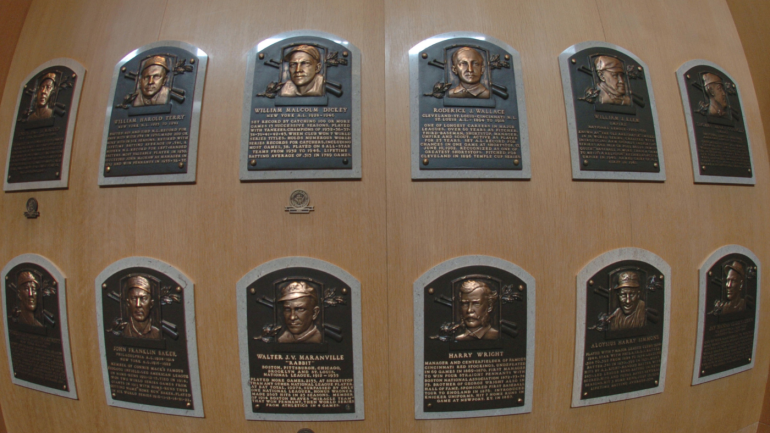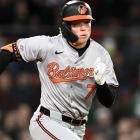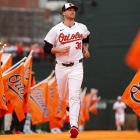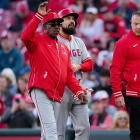
Welcome to Snyder's Soapbox! Here I pontificate about a matter related to Major League Baseball on a weekly basis. Some of the topics will be pressing matters, some might seem insignificant in the grand scheme of things and most will be somewhere in between. The good thing about this website is it's free and you are allowed to click away. If you stay, you'll get smarter, though, that's a money-back guarantee. Let's get to it.
The results of the BBWAA portion of the 2024 Baseball Hall of Fame vote are set to be revealed on Tuesday. I've already offered up predictions for a three-man class of players joining manager Jim Leyland.
I've also gotta rant a little bit and in anticipation of seeing a bunch of ridiculous discourse surrounding the reveal, let's focus on three big myths that still persist from the general public of sports fandom when it comes to the Baseball Hall of Fame vote.
1. The Hall of Fame is becoming too watered down!
Every time there's someone voted into the Hall of Fame who doesn't feel like an all-time great, we deal with this sentiment. We heard it last year with Scott Rolen getting in just like we did with Larry Walker in 2020 and now it'll be Todd Helton if he clears the 75% mark. I think the issue is a disconnect between the established standard of the Hall of Fame and what some people believe it should be.
The inner-circle, all-time greats like Walter Johnson and Ty Cobb are joined by lesser-known greats in the Hall like Stan Coveleski and Edd Roush. There's room for all kinds of great players, of course, and no one should ever argue that all Hall of Famers are created equal.
Still, when some people hear Hall of Fame, the immediate reaction is that it is only Mickey Mantles and Whitey Fords instead of realizing there are also Hugh Duffys and Joe McGinnitys -- and that leads to "OMG, Todd Helton? It's getting so watered down now!" complaints.
The thing is, the Hall of Fame was the most watered down with players who lowered the standard of the Hall decades ago. It's never been more difficult for great players to make the Hall of Fame than these last several decades. Even with some big classes in a historic run of inductions with the 2014-20 Hall of Fame classes, the percentage of players to make the Hall remains lower than baseball's earlier decades.
Via the excellent James Smyth (a researcher for YES Network), here are the percentage of players in the Hall of Fame, sorted by the decade in which they debuted. This includes only players reaching 2,000 innings pitched or 5,000 plate appearances (remember, a player has to be in Major League Baseball for at least 10 years to become Hall-eligible).
- Pre-1900: 22.1%
- 1900-09: 20.3%
- 1910-19: 23.2%
- 1920-29: 36%
- 1930-39: 19.5%
- 1940-49: 25.4%
- 1950-59: 22.1%
- 1960-69: 15.1%
- 1970-79: 10.7%
- 1980-89: 11%
- 1990-99: 8.1%
The expected additions of Adrian Beltré and Helton would boost the '90s to 9.3%, still lower than any previous decade. It's too early to start judging the 2000s (when Mauer debuted), but this illustrates that players who debuted in 1970 or later have been held to a much higher standard than those before them.
I still see nonsensical stuff tossed around like "did you ever buy a ticket just to watch (insert name) play?" It was applied to Beltré this year. The funny thing is, every time this rhetorical is asked, the answer could easily be yes from a portion of baseball fandom. And if a large portion of fans buy tickets to see a specific player, does that now make him a Hall of Famer? Félix Hernández joins the ballot next year, for example, and are you going to argue that there weren't Mariners fans who specifically went to watch him pitch? Of course they did. That doesn't change that his Hall of Fame case falls short. It's a joke of an argument applied to justify an opinion missing facts. It certainly isn't evidence that a player should or shouldn't be in.
I understand that the Small Hall people out there wish that the Hall of Fame was only the absolute top shelf super-duper-mega stars like Ted Williams, Willie Mays, Hank Aaron, Jackie Robinson, Greg Maddux, Mariano Rivera and Lou Gehrig, but that ship has long since sailed. You'll find more relatively nondescript names than you care to count, such as Fred Clarke, Ross Youngs, Eppa Rixey, Buck Ewing, Jake Beckley, Kiki Cuyler, Billy Hamilton (no, not that one), Billy Herman, Nellie Fox, Dave Bancroft, Ted Lyons and, well, I'll stop there.
This is where Larry Walker and Scott Rolen and, soon, Todd Helton garner backlash, but they aren't even remotely a drag on the Hall of Fame standard. They are worthy admissions and don't deserve to hear the negativity that comes with the honor.
2. The voting percentages shouldn't change this much!
Walker got 10.2% of the vote in 2014 and 76.6% in 2020.
Rolen got 10.2% of the vote in 2018 and 76.3% in 2023.
Helton got 16.5% of the vote in 2019, 72.2% last year and I'm expecting him to top 75% this time around.
The kneejerk reaction here is an easy one I don't blame anyone who has it: How is that even possible? They didn't play any more games or accrue any more stats.
I do think it's fair to wonder how many minds can change in such a short period of time, but there are circumstances that explain why voting percentages can fluctuate.
The ballot changes every year with waves of players coming on and falling off the ballot. Team that fact with a maximum of 10 spots for any given voter and it's easy to see how players could add or lose votes simply due to the makeup of the ballot. Let's say there's a voter that uses his or her maximum of 10 every year and there's a player like Billy Wagner who was ranked around 10th or 11th every single ballot. The years he's ranked by that voter 10th, he gets a vote. The years he's 11th, he doesn't.
Also, the voting body is everchanging. There are voters each year who fall off the voting roll, whether by lapsing BBWAA membership, changing jobs, etc. Meanwhile, each year there are new voters. I'm entering my 10th year in the BBWAA, which means I'll be a new voter next year. A good number of holdover candidates will get an added vote from me. There was nothing nefarious. I just haven't yet gotten to vote and next year I will.
Finally, people do change their minds. That's allowed, you know. The baseball media world has some people (like me!) who dedicate a good amount of time each winter to making cases for or against players on the Hall of Fame ballot. It's entirely within the realm of possibility that reading something somewhere can cause a voter to add or drop certain players through the voting process. We've seen targeted campaigns for the likes of Bert Blyleven, Tim Raines, Edgar Martinez, Larry Walker and Rolen that worked. People can be persuaded to change and there doesn't need to be a negative spin attached to it.
3. You can't tell the story of baseball without him!
Call it the Pete Rose defense, but you'll see it used for Barry Bonds, Roger Clemens and a litany of others. The line of thinking is that these players were so important to baseball history that they cannot possibly be left out of a true Hall of Fame.
The thing is, the section of the Hall that has the bronze busts of individual players is just that: one section. It's also an individual honor and there's an argument to be made that some players just don't deserve the honor -- such as someone who knowingly bet on baseball games for years even though "permanent ban" was the punishment attached to such acts -- even if their stats merit inclusion. Some people will disagree, but it's why there are rules set by the Hall and a voting process.
By the way, there's an exhibit celebrating Rose's career hits record just as there is for Bonds' records.
Just because a player isn't personally enshrined doesn't mean the Baseball Hall of Fame has ignored his existence. Players don't have to be honored to be remembered.






















